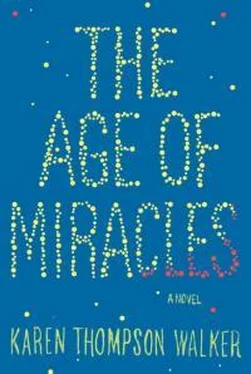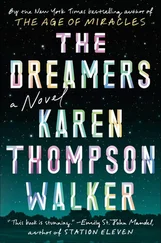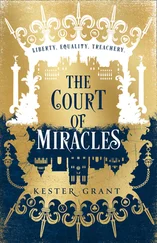Michaela’s young mother had slept right through the news.
“You didn’t see anything about it on television?” I asked Michaela later that week.
“We don’t have cable, remember? I never even turn the TV on.”
“What about the car radio?”
“Broken,” she said.
Even on ordinary days, Michaela had a continuous need for rides. On that first day of the slowing, while the rest of us watched the news in our living rooms, Michaela, stranded at the soccer field, fiddled for a while with an ancient, out-of-service pay phone, long forgotten by its maker—all the rest of us had cell phones—until finally the coach drove up to tell anyone who had shown up that the game was canceled, or at least postponed, and he gave Michaela a ride home.
By noon on that first day, the networks had run out of new information. Drained of every fresh fact, they went right on reporting anyway, chewing and rechewing the same small chunks of news. It didn’t matter, we were mesmerized.
I spent that whole day sitting on the carpet only a few feet from the television with my parents. I still remember how it felt to live through those hours. It was almost physical: the need to know whatever there was to know.
Periodically, my mother went around the house checking faucets one by one, inspecting the color and clarity of the water.
“Nothing’s going to happen to the water, honey,” said my father. “It’s not an earthquake.”
He held his glasses in his hands and was wiping the lenses with the bottom of his shirt, as if ours were a problem merely of vision. Bare of the glasses, his eyes always looked squinty to me, and too small.
“You’re acting like this isn’t a big deal,” she said.
This was a time when the disagreements between my parents were still minor.
My father held his glasses up to the light, then carefully set them on his face. “Tell me what you want me to do, Helen,” he said. “And I’ll do it.”
My father was a doctor. He believed in problems and solutions, diagnosis and cure. Worry, to his mind, was a waste.
“People are panicking,” said my mother. “What about all the people who run the water systems and the power grid? What about the food supply? What if they abandon their posts?”
“All we can do is ride this thing out,” he said.
“Oh, that’s a good plan,” she said. “That’s a really excellent plan.”
I watched her hurry out to the kitchen, her bare feet slapping the tile. I heard the click and creak of the liquor cabinet, the clinking of ice in a glass.
“I bet things will turn out okay,” I said, gripped by an urge to say some cheerful thing—it rose up from my throat like a cough. “I bet it will be fine.”
Already the crackpots and the geniuses were streaming out of the wilderness and appearing on talk shows, waving the scientific papers that the established journals had declined to publish. These lone wolves claimed to have seen the disaster coming.
My mother returned to the couch with a drink in her hand.
At the bottom of the television screen, a question blared in red block letters. This was the question: IS THE END NEAR?
“Oh, come on,” said my father. “That’s just pure sensationalism. What are they saying on public television?” The question dissolved in the air. No one changed the channel. Then he looked over at me and said to my mother, “I don’t think she should be watching this. Julia,” he said, “you want to go kick the ball around?”
“No, thanks,” I said. I didn’t want to miss a single piece of news.
I had pulled my sweatshirt down over my knees. Tony lay beside me on the rug, his paws outstretched, his breathing wheezy. His body was so bony, you could see the knobs in his spine. Chloe was hiding under the couch.
“Come on,” said my father. “Let’s go kick the ball around for a while.” He dug my soccer ball out of the hall closet and pressed it between his hands. “It feels a little low,” he said.
I watched him handle the pump as if it were a piece of his medical equipment, inserting the needle into the opening with a surgeon’s precision and care, then pumping methodically, like a respirator, always waiting for the last gasp of air to pass into the ball before forcing the next one through.
I tied my shoes reluctantly and we went outside.
We kicked back and forth in silence for a while. I could hear the newscasters chattering inside. Their voices mingled with the clean thud of foot against ball.
The neighboring backyards were deserted. Swing sets stood still as ruins. The twins’ trampoline had ceased to squeak. I wanted to be back inside.
“That was a nice one,” said my father. “Good accuracy.”
But he didn’t know much about soccer. He kicked with the wrong part of the foot. I hit the next one too hard, and the ball disappeared into the honeysuckle in the corner of our yard. We stopped kicking then.
“You’re okay, right?” he said.
Large birds had begun to circle the sky. These were not suburban birds. These were hawks and eagles and crows, birds whose hefty wings spoke of the wilder landscapes that persisted east of here. They swooped from tree to tree, their calls drowning out the twitter of our usual backyard birds.
I knew that animals often sensed danger where humans did not, and that in the minutes or hours before a tsunami or a wildfire strikes, the animals always know to flee long before the people do. I had heard that elephants sometimes snapped their chains and headed for higher ground. Snakes could slither for miles.
“Do you think the birds know?” I asked. I could feel the muscles in my neck tensing as I watched them.
My father studied their shapes but said nothing. A hawk landed at the crown of our pine tree, flapped his wings, then took off again, heading farther west toward the coast.
From inside, my mother called to us through the screen door, “Now they’re saying it might be affecting gravity somehow.”
“We’ll be there in a minute,” said my father. He squeezed my shoulder hard, then tilted his head up to the sky like a farmer on the lookout for rain. “I want you to think how smart humans are,” he said. “Think of everything humans have ever invented. Rocket ships, computers, artificial hearts. We solve problems, you know? We always solve the big problems. We do.”
We walked inside after that, through the French doors and onto the tile, my father insisting that we wipe our feet on the doormat as we crossed—as if remembering our rituals could ensure our safe passage—back to the living room to my mother. But I felt as he spoke and as we walked that although the world remained intact for now, everything around me was about to come apart.
In the hours that followed, we would worry and wait. We would guess and wonder and speculate. We would learn new words and new ways from the scientists and officials who paraded in and out of our living room through the television screen and the Internet. We would stalk the sun across our sky as we never had before. My mother drank Scotch over ice in a glass. My father paced in the living room. Time moved differently that Saturday. Already the morning felt like yesterday. By the time we sat waiting for the sun to drift down behind the hills to the west, it seemed to me that several days had passed inside the skin of just this one, as if the day had ballooned by much more than a single small hour.
In the late afternoon, my father climbed the stairs to my parents’ bedroom and then reappeared transformed in a collared shirt and dark socks. A pair of dress shoes was swinging from two of his fingers.
“Are you going somewhere?” asked my mother.
“I’m on at six, remember?”
My father delivered babies for a living, and he specialized in high-risk births. He was often on call, and he sometimes worked the overnight shift at the hospital. He frequently worked weekends.
Читать дальше












